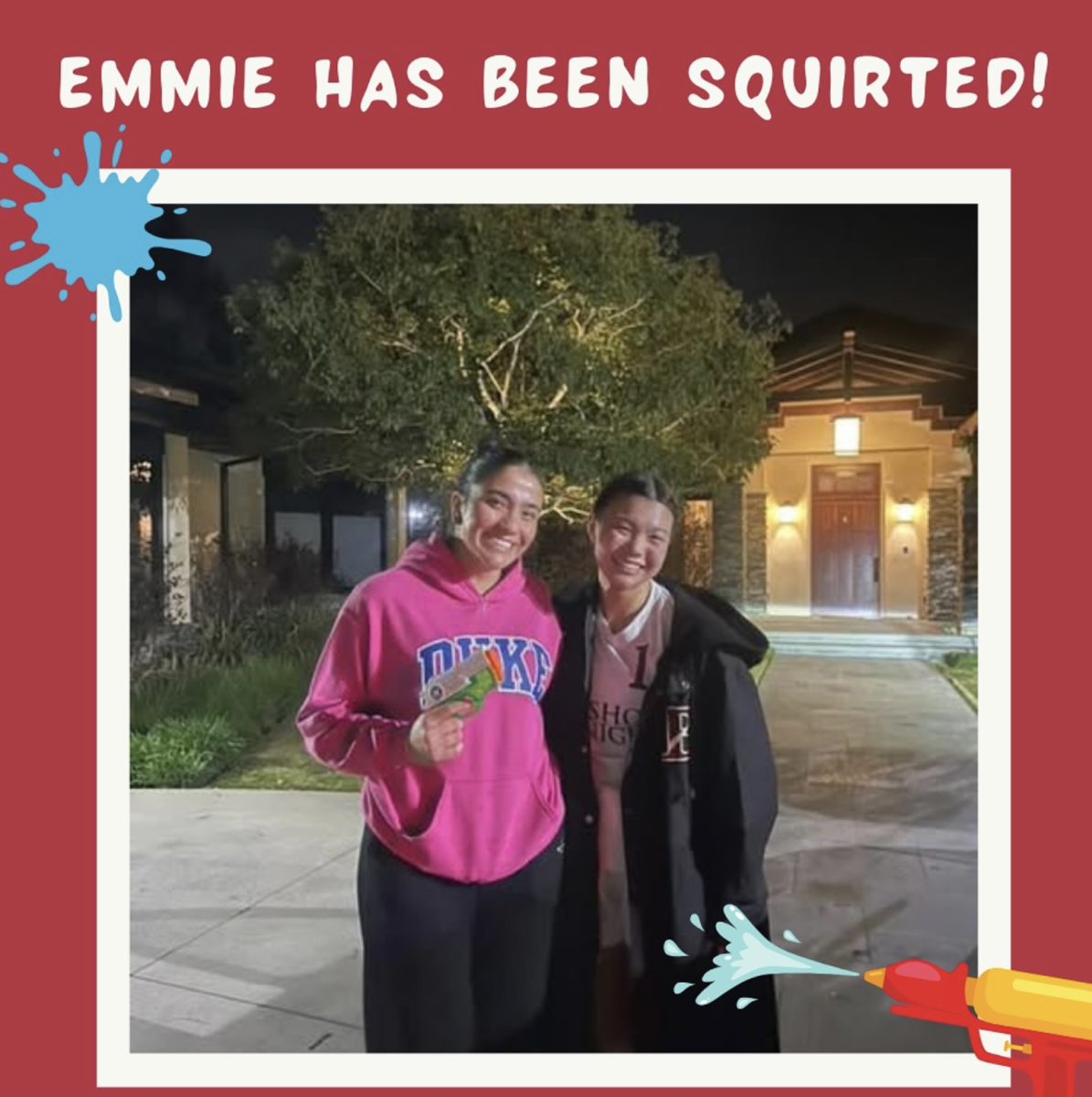Christopher Harvey (Jack (‘25) and Sam (‘28)) remembers the moment like it was yesterday. It was a Wednesday night in early 2008, his first night of active duty on the new naval ship he was stationed on. His wife, Sally, was driving to the ship with their new baby boy Jack to meet for dinner — real dinner, not the greasy sliders the ship was serving that night. He was looking forward to the time with his family, so he rushed to complete a report he was working on. After finishing it, he entered his commanding officer’s room and handed his boss the report. Before he could leave, the ship’s Squadron Commodore, his commanding officer’s boss, entered the room. “Have you told him yet?” the deep voice asked. The room went silent. His commanding officer stood still, staring at the new father. “Chris, we need to send you on an individual augmentee tour in Iraq,” he said. Blood rushed out of his face; he could not believe it. “I’m sorry, Chris, I really am.”
Every day, men and women, fathers and mothers, and sons and daughters receive the same difficult news that Mr. Harvey got in 2008: that they are being deployed abroad, sometimes in warzones, other times in dormant zones, but always far from home. The news means leaving their families, friends, and lives behind in order to protect us all. For their partners, it means making important decisions alone that will impact both their lives. And for their children, if they have them, it means growing up without a parent for months, sometimes years, on end.
In San Diego, there are 115,000 active duty military service members and 60,000 children growing up in military families. At Bishop’s, there are 28 students growing up in military families, according to the Admissions and Financial Aid Office. Highlighting the experiences and challenges of the people in our community connected to the military is important to being more aware and ensuring they receive the acknowledgement they deserve and the help they might need.
The Sacrifice and Selflessness in Military Families
The members of our community connected to the military have unique experiences that “add to the richness of our community,” explained Senior Associate Director of Admissions and Assistant Director of Financial Aid Ms. Lauren Beattie.
It takes incredible sacrifice and selflessness for a parent to risk their life and give up time with family. Mr. Harvey explained that “the biggest challenge is time. As a serviceman, my time was really limited.”
However, Mr. Harvey learned how to make the most of the time he did get with his family. “I learned that if you don’t have a large quantity of time with your family, you gotta really make sure to get great quality out of that time. So whatever time that I did have, I always asked myself ‘What can I do? What can I share? What memories can I create with my kids?’”
While one parent is serving, the other parent who stays back also makes immense sacrifices. Mrs. Sally Harvey (Jack (‘25) and Sam (‘28)) explained that when her husband was deployed, the military prohibited almost all communication because they did not want him to lose focus.
“When Chris deployed to Iraq and was gone for 10 months when Jack was little, it was really hard on me,” Mrs. Harvey began. “With barely any communication allowed, I really was making all the decisions for the family. I made decisions about what schools we were going to go to, where we were going to live, the neighborhood…And then, you know, he comes back, and that’s really hard for him, because he has to kind of fit into whatever I’ve decided.”
Mrs. Harvey said that it is in those moments that she really leaned into the community around her. “You really rely on the friends and neighbors that make up communities. If, say, someone’s spouse is deployed, they lean in on the community to help raise the kids. There is that saying — ‘it takes a village’ — it really does in our case.”
Madison Yau (‘28), whose father served in the Navy, noted that there are many kids who have parents who go away for months or years, even multiple times. “My dad only deployed a few times for a few months, but for many people, it can be a lot longer and make much more of an impact on them.”
These kids also move homes frequently, growing up without the same town, the same friends, and the same school. In fact, according to the Military Family Advisory Network, military families move, on average, every two-and-a-half years. That means that by the start of high school, a military child has moved six times. That’s six homes, six neighborhoods, six schools, and five long goodbyes from friends. Madison said, “We typically moved around about every three years.” This included places such as New Jersey, Rhode Island, California, and even Germany.
Rebuilding community instills values and lessons into students who are part of military families. “From moving around so much from a young age, I’ve learned to adapt,” Madison said. “I’d have friends in Germany and then I’d move to San Diego without any friends. But from that I learned how to find community and adapt quicker.”
Another aspect of military families’ values is the emphasis on service and patriotism. Katherine Johnson (‘26), whose parents both served in the Navy, expressed that, “We as a family understand the importance of service to our country. I have learned the values of honor, courage, commitment, and how they can be applied to everyday life. Being in a military family helps me strive to succeed in school, sports, and life.”
Jack noted that while many people with no connection to the military may have values of service and patriotism, “it’s so much easier to hold on to these values [in a military family] because it’s such a small community. I think in the big, wider world, they sometimes get diluted somewhat, and I think it’s important to keep hold of those.”
How Military Families Are Supported Both at Bishop’s and in Their Communities
Amid the challenges and sacrifices facing military families, there are many support systems, policies, and groups at Bishop’s and outside of the School.
On campus, Ms. Beattie noted that the School is “mindful of the many challenges military families face, and supports them as such throughout the admissions and financial aid process.”
One way Ms. Beattie said they do this is by being “as flexible as possible with our application deadlines for military families” given they often receive new orders that require relocations outside the typical admissions season. Additionally, Ms. Beattie explained the School waives the admissions application fee for active-duty military families. Lastly, Ms. Beattie noted that an endowed financial aid scholarship fund for military families was recently established.
In addition to official school policies, students from military families are supported through the community they build in the Military Affinity Space. The group was founded two years ago, is led by Jack, Ruben Gutierrez (‘25), and Melanie Yau (‘26), and is sponsored by Associate Director of College Counseling Mr. AJ Jezierski, whose father also served in the military.
“We meet a couple times a year and spend our time just trying to connect and get to know each other,” Jack said. “Bishop’s has a very small military population, and a lot of these kids have no idea who the other military kids are, so having that space is pretty important and I think it’s a very cool way for everyone to connect.”
Looking ahead, Mr. Jezierski hopes that, in addition to being an affinity space, the group can raise awareness to the experiences of military families, and their large presence in the local and school community. “I don’t think our students really always realize how affected we are by the military, not only in San Diego, but specifically within the school. We have faculty and staff who have served. We have plenty of students whose parents have served as well. So I think bringing awareness to that is something I’m excited for this group to do,” Mr. Jezierski said.
Outside of Bishop’s, there are many organizations that help families as well. Mrs. Harvey said Blue Star Families was an excellent example of an organization that is helping, because it connects nonmilitary families with military families. Mrs. Harvey explained that the organization was founded due to budget cuts forcing the military to reduce on-base housing. “Families having to disperse across San Diego and live farther away from other military families has really been a detriment to the military community and network that was so helpful to me and so many people,” Mrs. Harvey said. Blue Star Families “bridges the gap” between nonmilitary families and military families that are living in communities, and thus “is really trying to provide resources to connect military families with civilians who might not know how to support them,” Mrs. Harvey said.
Blue Star Families is one of many examples of organizations that support military families through the unique challenges they face, and Mrs. Harvey hopes any students interested in helping to reach out to her or any military parents, as it is a great way to give back to a community that sacrifices so much to support and protect us all.
Service Academies, ROTC Programs, and Enlisting: Ways to Join the Military
After the initial shock Mr. Harvey experienced after receiving the news that he would be leaving his wife and young boy to serve in Iraq, he realized that it was “almost like fate telling me that it was my time to serve — my call to service.”
It is this call to service that inspires many young adults across the U.S., including at Bishop’s, to enlist in the military. In fact, five Bishop’s students have matriculated to service academies in the past four years, and just this year, there are at least three seniors applying to service academies and ROTC programs.
Jack is one of the seniors that are applying to service academies for college this fall. Jack says that while his parents never pressured him to apply, given the experiences he has had and “the habit of service” he has developed, he “feels this call and desire to be part of something that is bigger than me. It’s a different kind of feeling when you can get a lot of people together to achieve a singular goal, and that’s something that I really value and cherish.”
Bishop’s supports students through the unique and competitive process of applying to service academies, such as The Naval Academy, West Point, and Air Force Academy. Mr. Jezierski said that, “if students are interested in service academies, their college counselor will walk them through all the necessary steps beginning in the spring of their junior year to make sure they are set up for the intricacies associated with this potential path” Mr. Jezierski noted that these “intricacies” include specific summer programs at service academies and nominations from local congressmen or state senators.
Lastly, Mr. Harvey urged any student who may feel a call to service to not hesitate in reaching out to him or anyone other military families at Bishop’s. “We would love to help you think through it. It has been a great honor of my life, and if I can help give that to anyone else, I would in a heartbeat.”










